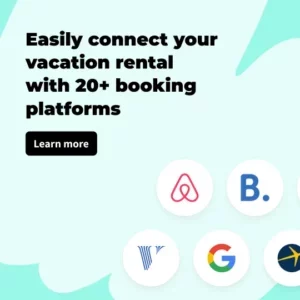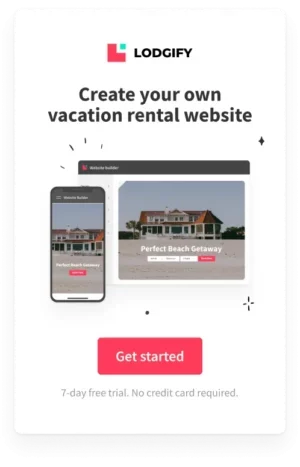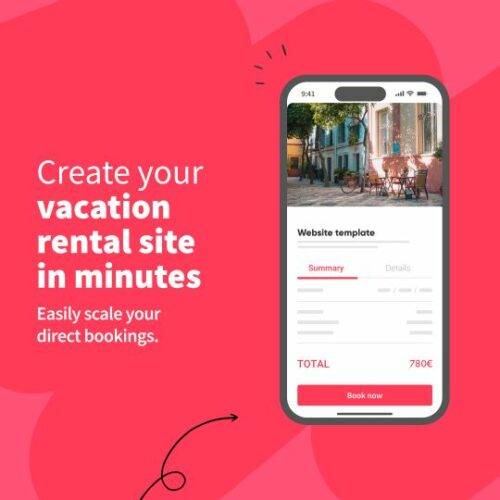
1. Introduction
Imagine this scenario: You’ve put effort into creating an appealing Airbnb listing, meticulously managing your calendar, and adhering to Airbnb’s guidelines.
Suddenly, a potential guest throws a curveball by asking if they can book your property offline. What should you do? In this comprehensive guide, we’ll delve into the intricacies of handling offline booking requests as an Airbnb host.
2. Politely Decline and Shift the Blame
Offline booking requests are a situation many hosts encounter, and it’s essential to approach them thoughtfully. Politely but firmly decline such requests.
However, it’s crucial to avoid making the guest feel untrustworthy. Instead, provide a reasonable explanation that puts the onus on you. Here are some examples:
- “I’m committed to maintaining accurate tax and personal records at the end of the year.”
- “I need to keep my calendar up-to-date to ensure I provide the best possible service.”
- “To ensure we both have a seamless Airbnb experience and leave a review, it’s best to book through the platform.”
3. Offer a Discount for Online Booking
One effective strategy for handling offline booking requests, especially when dealing with guests who’ve given you a positive experience, is to incentivize online booking.
Offer a small discount as an incentive for them to book through Airbnb’s platform. This approach not only encourages online bookings but can also lead to positive reviews, boosting your host reputation.

4. Special Considerations for Long-Term Reservations
While online bookings are generally the preferred route, there are scenarios where offline booking might make sense, particularly for extended stays of two months or more.
However, a crucial prerequisite for offline bookings in these cases is having comprehensive vacation rental insurance. This insurance provides protection against various risks, such as property damage or accidents, ensuring both you and your guests are safeguarded.
5. The Prevalence of Offline Booking Requests
Offline booking requests, while relatively uncommon, do happen more frequently than one might expect.
Having hosted hundreds of guests and managed over a thousand reservations, I’ve encountered these requests about once every 100 bookings. It’s essential to be prepared and knowledgeable about how to handle them.
6. Handling Requests Made Before Booking
When a guest asks to book offline before making a reservation, it’s crucial to follow specific guidelines. Firstly, always say no to offline bookings initiated through Airbnb.
Attempting to share personal contact information or facilitate offline payments before a booking can lead to issues, including potential Airbnb scrutiny or flagging of the conversation. This is best avoided.
7. Responding to Requests After Check-In
If a guest has already booked for one night and later approaches you with an offline booking request, it’s important to be considerate in your response. In most cases, guests make these requests out of genuine curiosity, and a polite decline is usually sufficient.
However, if the guest has proven to be an excellent one, offering a small discount for additional nights can enhance your reviews and reputation.

8. The Risks of Accepting Offline Bookings
While some hosts may be tempted to accept offline bookings to earn more money, there are considerable risks involved. For example, accepting offline bookings might result in double bookings if your calendar isn’t kept up to date.
This risk is particularly significant if you list your property on multiple platforms. Additionally, canceling an Airbnb reservation, a potential consequence of offline bookings, can lead to losing your Superhost status and a drop in search result rankings.
9. When It’s Acceptable to Book Offline
It’s essential to remember that accepting payments offline that originated from Airbnb’s platform is against Airbnb’s terms of service and could lead to account cancellation.
While some hosts may argue for the financial benefits of offline bookings, this approach is only feasible if you’ve established a robust personal brand and website. Furthermore, you must have a comprehensive short-term rental insurance policy that covers various risks.
10. The Tip for Showcasing the Property
In some cases, guests may want to inspect the property before making a booking, especially for extended stays. While Airbnb discourages offline bookings, you can accommodate such requests by agreeing to meet at a local store near your listing.
However, always encourage the guest to complete the booking through Airbnb to ensure transparency and security for both parties.
11. Conclusion
In conclusion, handling offline booking requests as an Airbnb host requires a delicate balance of diplomacy and adherence to platform rules. While some guests may propose offline bookings to save on fees, it’s essential to prioritize the safety, transparency, and convenience of online bookings.
Remember that Airbnb’s policies are in place to protect both hosts and guests, and following these guidelines ensures a positive hosting experience for all parties involved.
You may also like to read;
How to Complete 100% of Your Host Profile on Airbnb for Maximum Bookings










